Guest Commentary: Virginia’s Senseless Smoking Ban
30 Nov
[Editors’ Note: Tomorrow, Virginia’s smoking ban goes into effect. The following guest commentary was originally published in January 2008 when Virginia Governor Tim Kaine began pushing for the statewide smoking ban, but the reasons it gives for opposing the smoking ban remain just as valid today.]
Virginia Gov. Tim Kaine recently announced that he’ll renew his fight to ban smoking in all Virginia bars and restaurants. He defended this push by citing the dangers of secondhand smoke, saying, “The scientific evidence about the health risks associated with exposure to secondhand smoke is clear and convincing. Recognizing the negative health effects and high public costs of secondhand smoke, Virginia must act to protect the workers and consumers in its restaurants.”
 We’re pleased the governor has such command of the epidemiologic literature. Usually, when politicians make such statements, they have little if any familiarity with scientific research. Kaine should cite the empirical studies showing the health effects of bar and restaurant patrons’ occasional exposure to tobacco smoke. We’re not aware of any such studies; even the much-cited recent surgeon general’s report on secondhand smoke offered no statistical evidence of diminished health from occasional exposure. The findings on health effects that we’ve seen involve people who are chronically exposed to secondhand smoke—people such as the spouses and children of smokers who’ve had decades of regular, concentrated exposure.
We’re pleased the governor has such command of the epidemiologic literature. Usually, when politicians make such statements, they have little if any familiarity with scientific research. Kaine should cite the empirical studies showing the health effects of bar and restaurant patrons’ occasional exposure to tobacco smoke. We’re not aware of any such studies; even the much-cited recent surgeon general’s report on secondhand smoke offered no statistical evidence of diminished health from occasional exposure. The findings on health effects that we’ve seen involve people who are chronically exposed to secondhand smoke—people such as the spouses and children of smokers who’ve had decades of regular, concentrated exposure.
The governor further claims that he has “clear and convincing” scientific evidence that a ban would decrease health risks and reduce “high” public costs. Can he tell us what those costs were and how they were calculated? How much will Virginia’s current trends in mortality and morbidity change as a result of his prohibition? Will he promise to repeal the law if no such change materializes?
Of course, people have a right to avoid exposure to secondhand smoke, no matter what studies show. But they don’t have the right to force everyone else to live according to their preference. Fortunately, the world can accommodate their desires along with those of people who don’t mind tobacco smoke, just as it can accommodate people who like Chinese food and people who prefer hamburgers. Restaurant and bar owners want to make money, and they do so by catering to different market niches. In Northern Virginia, many restaurants and bars advertise that they are smoke-free, while others cater to a smoking crowd. This offering of many different choices is a virtue of open markets. So why would Kaine override the smoking choices of different people and instead impose his preference on all Virginians?
The governor noted his concern for the health of hospitality workers, who may have more exposure to secondhand smoke. But when bar and restaurant owners set their smoking policies, they must consider the preferences of their staff or else they’ll find themselves facing rapid turnover and paying higher wages. Why should all Virginia bar and restaurant workers be forced to work in a nonsmoking environment that only some of them demand?
Liberal societies allow people to make decisions that others don’t like. If some Virginians want to eat and drink in an establishment that allows smoking, and some workers want to work there, and some entrepreneur wants to finance that business, why does the governor think he should overrule them?
–Tom Firey and Jacob Grier
[Tom Firey is editor of Regulation magazine, which is published by the Cato Institute. Jacob Grier, formerly of Cato, is a friend of StogieGuys.com. He blogs at JacobGrier.com.]
photo credit: 50states.com

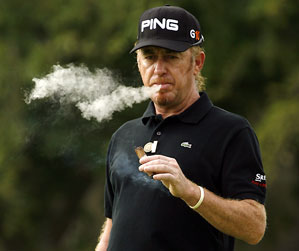
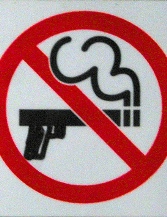 Regular readers will recall that, over the years, we’ve written a great deal about the lamentable spread of state and local smoking bans. While my colleagues and I try to keep our web magazine focused more on tobacco and less on politics, some issues—predominantly taxes and bans—cannot and should not be avoided.
Regular readers will recall that, over the years, we’ve written a great deal about the lamentable spread of state and local smoking bans. While my colleagues and I try to keep our web magazine focused more on tobacco and less on politics, some issues—predominantly taxes and bans—cannot and should not be avoided. My apartment hunt in downtown Portland yesterday brought unexpected frustration. As I strolled among modern high-rises with big balconies, surrounded by restaurants and coffee shops and independent specialty stores, I thought I’d found the perfect city for me. Yet time and again I was told that my kind are not welcome in these apartments: the residences are completely smoke-free, inside and out.
My apartment hunt in downtown Portland yesterday brought unexpected frustration. As I strolled among modern high-rises with big balconies, surrounded by restaurants and coffee shops and independent specialty stores, I thought I’d found the perfect city for me. Yet time and again I was told that my kind are not welcome in these apartments: the residences are completely smoke-free, inside and out.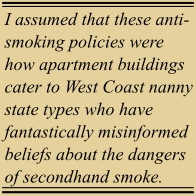 To put all this into perspective, of the more than 70 items on the checklist, only 7 are necessary prerequisites. In the indoor environmental quality category, increased ventilation, low-emitting materials use, thermal comfort, and outdoor air delivery monitoring are all optional. In other categories things like materials reuse, building with certified wood, managing refrigerants, using renewable energy, reducing water use, and minimizing the heat island effect are optional. For a project that’s primarily concerned with environmental protection, prioritizing outdoor smoking bans over these other concerns is strange indeed.
To put all this into perspective, of the more than 70 items on the checklist, only 7 are necessary prerequisites. In the indoor environmental quality category, increased ventilation, low-emitting materials use, thermal comfort, and outdoor air delivery monitoring are all optional. In other categories things like materials reuse, building with certified wood, managing refrigerants, using renewable energy, reducing water use, and minimizing the heat island effect are optional. For a project that’s primarily concerned with environmental protection, prioritizing outdoor smoking bans over these other concerns is strange indeed.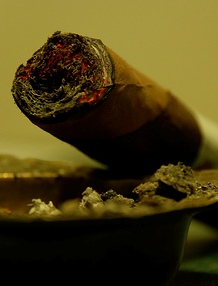 But understanding what’s happening in the increasingly hostile smoking ban movement is an essential tool in asserting our freedoms as cigar smokers and standing up for the rights of restaurant and bar entrepreneurs across the nation. In that spirit, and since I haven’t written anything similar since
But understanding what’s happening in the increasingly hostile smoking ban movement is an essential tool in asserting our freedoms as cigar smokers and standing up for the rights of restaurant and bar entrepreneurs across the nation. In that spirit, and since I haven’t written anything similar since 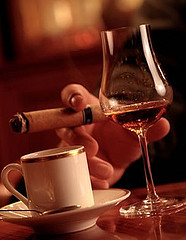 So when I come across interesting stories about bar owners who either outright defy or creatively sidestep smoking bans, I have to applaud them. These entrepreneurs are rightfully taking steps to regain control of the establishments they risked so much for and worked so hard to open – much to the chagrin of bureaucrats and tobacco-hating buffoons. Below are three of my favorite smoking ban defiance stories from recent headlines; they range from courageous to downright ingenious:
So when I come across interesting stories about bar owners who either outright defy or creatively sidestep smoking bans, I have to applaud them. These entrepreneurs are rightfully taking steps to regain control of the establishments they risked so much for and worked so hard to open – much to the chagrin of bureaucrats and tobacco-hating buffoons. Below are three of my favorite smoking ban defiance stories from recent headlines; they range from courageous to downright ingenious: Patrick Ashby
Co-Founder & Editor in Chief
Patrick Ashby
Co-Founder & Editor in Chief Patrick Semmens
Co-Founder & Publisher
Patrick Semmens
Co-Founder & Publisher George Edmonson
Tampa Bureau Chief
George Edmonson
Tampa Bureau Chief